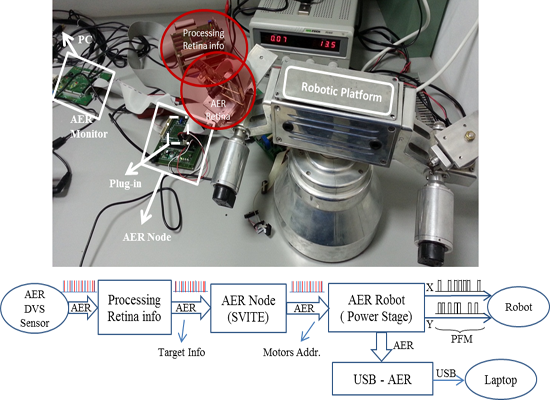Abstract: In this paper we present a complete spike-based architecture: from a Dynamic Vision Sensor (retina) to a stereo head robotic platform. The aim of this research is to reproduce intended movements performed by humans taking into account as many features as possible from the biological point of view. This paper fills the gap between current spike silicon sensors and robotic actuators by applying a spike processing strategy to the data flows in real time. The architecture is divided into layers: the retina, visual information processing, the trajectory generator layer which uses a neuroinspired algorithm (SVITE) that can be replicated into as many times as DoF the robot has; and finally the actuation layer to supply the spikes to the robot (using PFM). All the layers do their tasks in a spike-processing mode, and they communicate each other through the neuro-inspired AER protocol. The open-loop controller is implemented on FPGA using AER interfaces developed by RTC Lab. Experimental results reveal the viability of this spike-based controller. Two main advantages are: low hardware resources (2% of a Xilinx Spartan 6) and power requirements (3.4 W) to control a robot with a high number of DoF (up to 100 for a Xilinx Spartan 6). It also evidences the suitable use of AER as a communication protocol between processing and actuation.

Full text: http://www.mdpi.com/1424-8220/13/11/15805
